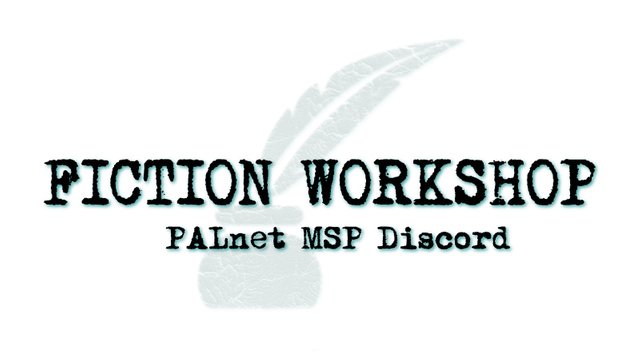Rhino Rules for Writers: Lesson #1, Cut to the Chase
 *pixabay photo by @Myriams-Fotos)
*pixabay photo by @Myriams-Fotos)
Too Many Words
You have a story to tell, and you're gonna tell it, and people will read it, because you wrote it!
Eh.
In the transition from your imagination to words on a page, much is lost, or obfuscated, or freighted with adjectives, adverbs, and vocabulary words. You love to show off your "million dollar prose," which is in fact a dime a dozen.
LESS is MORE
We love "Brothers Karamozov" and "Les Miserables" and all that lush 19thC literature, right? (Right?)
Well, today's authors no longer get paid by the word. Paper costs a lot. Even ebooks are supposed to be kept to a magical 100,000-word maximum. Victor Hugo might get three pages to describe a door, but you don't.
Donald Maas, Elmore Leonard, Renni Browne and Dave King, Writer's Digest, and countless bloggers and authors have written books on how to write and how to edit and how to put fire in your fiction.

Yes, those are all mine. Yes, I've read them. Yes, there are more piled around my house.
I hesitate to use examples from steemit's Fiction Workshop, in part because they're not bad enough to illustrate my objection to overweight prose, so I'll snag a 1930 novel that nobody here is likely to have heard of (sorry, Maxwell Bodenheim!):


Did you happen to read that page and notice all the was + -ing words, too?
--You didn't read it any of it? Can't say that I blame you.
Cut to the chase!
With apologies to @thinknzombie, whose prose is now winning fiction contests and getting curated, here is an example of something he submitted to Fiction Workshop. The Rhino pounced:
Masahiro knows that memories are a tricky thing. If you don't clamp down on them they can slip away from you, like a cat wriggling from your grasp when it sees the bathwater closing in. He knows that memories are best put in place and tended, like flowers. They are long-term friends, not fly-by-night visitors. Treated that way they would take root and then you would never lose them. Or maybe they were like pets. Best friends. That was how he treated his recollections of Yuki, grooming each of them in turn like prize-winning Golden Retrievers or long-haired Abyssinians.
I told him:
To me, the analogy is weakened by too many examples. All good, but cat fleeing from bath water, flowers taking root, best friends, then dogs groomed for prize winning... LESS is MORE, says the Rhino.
The author humbly replied:
I hear and obey. :-) I was definitely channeling Kelly Link when I wrote this...
And so he came up with this finely rendered paragraph in its place:
Masahiro knows that memories are a tricky thing. If you don't clamp down on them they can slip away from you, like a cat wriggling from your grasp when it sees the bathwater closing in. Memories must be curated, caressed. That was how he treated his recollections of Yuki, grooming each of them in turn like long-haired Abyssinians.
To read all of this beautifully written (wrought!) tale, "Jazz Firebrand's Last Dance: A story in two parts," click here.
The first "bad example" wasn't bad enough, not wordy enough? I know, I know. But look at the two paragagraphs again. Which one is stronger?
Duly note: he also deleted "He knows that ..." because in Deep POV, we don't need it.
What is Deep POV? Come to Fiction Workshop. Click on the push-pin icon.
Or persuade me to just post the link already: Aarrrrgggh! Another techno difficulty! (We shall try again later.)

By Vladimir Gjorgiev; Stock photo ID: 171028250
Fine.
Let's look at this self-indulgent, mind-numbing, dazzling, magnificently effulgent passage of purple prose:
It was many years ago in that dark, chaotic, unfathomable pool of time before Germaine's birth (nearly twelve months before her birth), on a night in late September stirred by innumerable frenzied winds, like spirits contending with one another--now plaintively, now angrily, now with a subtle cellolike delicacy capable of making the flesh rise on one's arms and neck--a night so sulfurous, so restless, so swollen with inarticulate longing that Leah and Gideon Bellefleur in their enormous bed quarreled once again, brought to tears because their love was too ravenous to be contained by their mere mortal bodies; and their groping, careless, anguished words were like strips of raw silk rubbed violently together (for each was convinced that the other did not, could not, be equal to his love--Leah doubted that any man was capable of a love so profound it could lie silent, like a forest pond; Gideon doubted that any woman was capable of comprehending the nature of a man's passion, which might tear through him, rendering him broken and exhausted, as vulnerable as a small child): it was on this tumultuous rainlashed night that Mahalaleel came to Bellefleur Manor on the western shore of the great Lake Noir, where he was to stay for nearly five years.
Oh wait.
That's Joyce Carol Oates. That's the opening line of"Bellefleur," one of this Best Selling author's more commercially successful novels, first published in 1980.
How does she get away with over-the-top, adjective-laden prose?
Once established, writers can go out on a limb and take all sorts of chances that novice authors are told to avoid.
Barry Lyga is one a gazillion bloggers who give us examples of over-wrought prose and suggestions on how to simplify in
Overwriting.
Here is another:
Overwriting in Writing Voice and Why It's a Problem
Ahh, and here is that link* on Deep POV,
... which is connected to "Less is More," in that deleting the clutter of she or he thought, felt, sensed, noticed, wondered, knew, etc, will strengthen your prose.
*Thank you, @bex-dk, for coming to the rescue. Again. As usual. As we all come to expect, at Fiction Workshop. As -
Ahh, you noticed, eh? Too many words.
(Thanks also to @PegasusPhysics for catching my typos and showing me how to get two photos side by side at steemit AND showing me how to hyperlink here.)

Thanks for sharing these tips and thoughts.
Namaste :)
Once an author becomes famous, their editors stop working. So many case in points, but the most famous case is Harry Potter and the Order of the Phoenix, that book should have been a quarter longer. My mom complains that suddenly Outlander descriptions have become unbearable. It's all about how famous you are. But 19th century literature is at it's best when it's not wordy: "It is a truth universally acknowledged, that a single man in possession of a good fortune, must be in want of a wife." "All happy families are alike; each unhappy family is unhappy in its own way." "
"It is a truth universally acknowledged, that a single man in possession of a good fortune, must be in want of a wife."
What's that from? If I read that in a novel, I'd probably stop reading it lol
pride and prejudice. It's a classic. and a surprisingly good one.
Well said! I'm with you - and I love both your examples of 19th C literature at its best.
@originalworks
The @OriginalWorks bot has determined this post by @carolkean to be original material and upvoted it!
To call @OriginalWorks, simply reply to any post with @originalworks or !originalworks in your message!
To nominate this post for the daily contest, upvote this comment!
For more information, Click Here!
Great simple and to the point lessons!
Hi. I'm a 'novince' writer and I've been wondering why people wouldn't read my work. I see that I have so much to learn. Maybe you can help me.
If you work on Fiction, you can check out the #fiction-workshop on PALNet. We have a critique group there to help each other.
But then - and don't shoot me for this, but then there is ever so glorious Proust with paragraphs, nay, sentences spanning pages and pages. And Joyce (at his best). Some weave words into things so full of magic, it seems sacrilegious to cut any of it out for the simple joy of escapism. I want to be jealous of my words someday. Every freaking last one of them. :)
But in a larger sense I agree with you entirely. I just thing we ought to be able to make a distinction between too many words thrown out there carelessly or snobbishly and where each was chosen with care and delicacy of an artist. Fiction vs literature debate I guess. And I still enjoy literature.
Man's nature is not essentially evil. Brute nature has been known to yield to the influence of love. You must never despair of human nature.
- Mahatma Gandhi
Well said! I don't usually read posts that are this long but you really made a point here @carolkean :D
good post my frend
Carol, this is PERFECTION! Thank you!
Ah, Bex, far from it... but it's better, with you supplying the missing link. Next up, teaching a Rhino how to hyperlink here at steemit. No problem at wordpress (blog) but here....
Informative and useful post, thank you.
If I can return the information favour...
Hyperlink is (quite) simple once you get the hang of it...
Gives you this:
The magic word is [here] in square brackets?
THANK YOU Peg, aka Pegasus!
It didn't work. I don't understand.
Here is another:
[here]https://kidlit.com/2011/08/24/two-signs-of-overwriting-and-why-its-a-problem/
Aha! Missing (http) parens...
well darn. i'd been resorting to old school html a tags and hrefs. Good to know ;-)